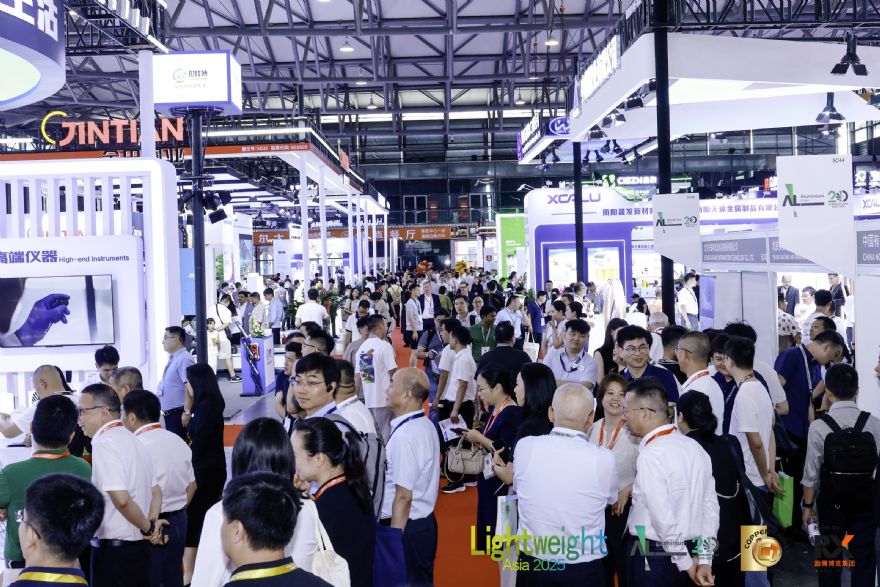
The Shanghai New International Expo Centre became a key hub for the copper industry last month, hosting
Copper China 2025, a major event co-organised by
RX China and the China Nonferrous Metals Fabrication Industry Association. Co-located with
Aluminium China and the
Asia Automotive Lightweight Trade Fair 2025, the non-ferrous metals event attracted 32,466 visitors from over 100 countries.
The three-day exhibition (9-11 July) reinforced its role as an important platform for industry collaboration, supported by two key pillars — a comprehensive product showcase platform and a well-established technical exchange hub. This combination not only highlighted the latest industry innovations but also fostered meaningful partnerships that will help shape the future of the copper sector. The exhibition presented a comprehensive view of the copper ecosystem, covering everything from raw materials to end applications, with a broad range of products representing various stages of the industry lifecycle.
Industry leaders presented breakthroughs that redefine material performance. Hailiang and Jiangxi Copper unveiled high-performance structural materials — titanium bronze, prized for its strength-to-weight ratio in aerospace and marine applications, and copper-nickel corrosion-resistant alloys, critical for offshore wind farms and desalination plants.
Graphene-reinforced copper compositesMeanwhile, Chujiang New Materials drew significant attention with graphene-reinforced copper composites, an innovative advancement in material science that enhances conductivity and reduces weight—properties that make it a promising solution for electric vehicle (EV) motors and photovoltaic energy storage systems.
Precision manufacturing was also in the spotlight with products tailored to high-growth sectors. Jin Long Precision introduced ultra-fine enameled wires (as thin as 0.03mm), essential for miniaturized electronics like wearable devices and EV battery management systems. Tong Ling Nonferrous showcased flexible copper foil circuit boards, whose durability and conductivity make them ideal for 5G base stations and foldable smartphones — proving copper’s adaptability to the demands of digital transformation.
Beyond core materials, the exhibition painted a holistic picture of copper’s journey from production to application. Smelting equipment from Bu Hui Machinery, designed for energy-efficient copper extraction, and smart testing systems from Jing Song Intelligent, ensuring precision in alloy composition, highlighted advancements in manufacturing efficiency. Auxiliary solutions, such as Kai An New Materials’ eco-friendly surface treatment agents, underscored the industry’s shift toward sustainability, completing the circle from raw materials to product.
Copper China 2025 was also ‘a catalyst for knowledge sharing and partnership, with initiatives designed to turn ideas into action’. Amid the copper industry’s rapid evolution and constant innovation, technological breakthroughs are pushing copper materials into new frontiers. The ‘Copper-Based New Materials for Advanced Applications Forum’ brought together global experts to dissect pivotal trends.
Cutting-edge forumAt the forum, industry veterans and innovators gathered to discuss a wide range of topics, including: corrosion-resistant conductive components for renewable energy gear; flat-wire motor winding tech in EVs; nterface strengthening of nanocrystalline copper composites. They dissected new copper processing products, technologies, and applications — and unveiled how copper-based materials are reshaping industries — new energy vehicles, power grids, photovoltaic storage, healthcare, and green buildings. From lab R&D to real-world deployment, the forum lit up fresh ideas for the entire supply chain.
Leveraging RX’s global network, the event facilitated 114 cross-border meetings. From long-term supply agreements for precision copper components (vital for electronics and automotive sectors) to joint R&D initiatives on advanced alloys and composite materials for renewable energy, these collaborations underscored the platform’s role as a bridge between global needs and Chinese innovation.
With 3,214 overseas visitors — from Europe and North America to Africa and Southeast Asia —
Copper China 2025 reinforced its status as a premier international event for the industry. It wasn’t just about transactions — it was about aligning global industry players around shared goals — advancing sustainability, scaling green technologies, and standardising innovation. As one European delegate noted: “This event doesn’t just show us what is possible — it connects us to the people and technologies that can make it happen.”
Copper China will return to the Shanghai New International Expo Centre 8-10 July 2026, and will build on 2025’s momentum. With expanded showcases, deeper technical exchanges, and even more targeted matchmaking, it will continue bridging global innovation and collaboration, helping to drive the copper industry’s sustainable evolution.